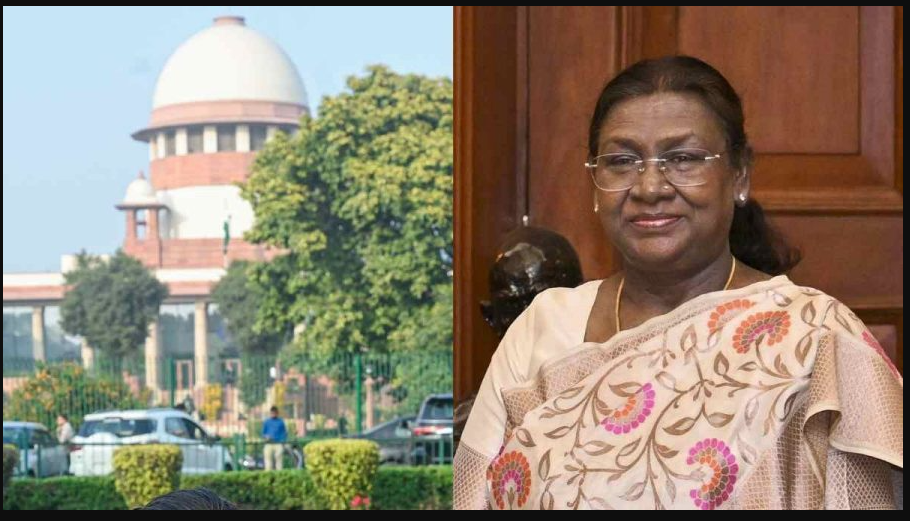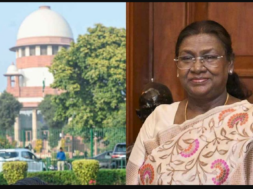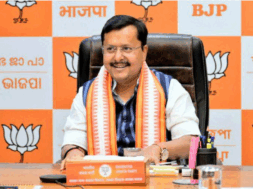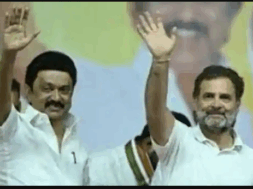
Review Petition Likely on SC ruling on President, Governors TimeLine to Assent Bills
Manas Dasgupta
NEW DELHI, Apr 14: The Centre is learnt to be considering to approach the Supreme Court with a review petition to review its judgment of setting a timeframe for the President and the governors to decide on giving assent to bills passed by state legislatures, which effectively curtails the powers of the President, and by extension the Council of Ministers, which advises the President and in the state which advise the governors.
Besides seeking a review of the timeline, the government may also seek a review of the apex court’s order that the state governments can directly approach it if the President withholds assent to a bill sent by a governor for consideration.
If the government approaches the Supreme Court, the review petition will have to be filed before the same bench of Justices JB Pardiwala and R Mahadevan that pronounced the verdict.
After the April 8 judgement, the Tamil Nadu government notified 10 pending bills as Acts in the government gazette, citing the Supreme Court’s ruling that they were “deemed” to have received assent. t
In its order, the Supreme Court has prescribed that the President should decide on the bills reserved for her consideration by the governor within three months from the date on which such reference is received.
This was in addition to the top court’s nod to the 10 bills, which were stalled and reserved by Tamil Nadu Governor RN Ravi for the President’s consideration. The court set a timeline of one month for all governors to act on the bills passed by the state assemblies, according to the judgement running into 415 pages and uploaded on the apex court’s website on Friday night which has been criticised by some of the governors in non-BJP ruled states.
The Supreme Court has also said only the courts have the prerogative to provide recommendations regarding the constitutionality of a Bill and the Executive was supposed to exercise restraint in such matters underlining that it would be prudent for the President to refer Bills with constitutional questions to the Supreme Court.
The court has also said the President’s functions are amenable to judicial review under Article 201 of the Constitution. “Whenever, in exercise of the powers under Article 200 of the Constitution, a bill is reserved for the consideration of the President on grounds of patent unconstitutionality that are of such a nature so as to cause peril to the principles of representative democracy, the President, must be guided by the fact that it is the constitutional courts which have been entrusted with the responsibility of adjudicating upon the questions of constitutionality and legality of an executive or legislative action. Therefore, as a measure of prudence, the President ought to make a reference to this Court in exercise of his powers under Article 143 of the Constitution,” the order says.
The bench of Justice JB Pardiwala and Justice R Mahadevan in its order had said if the matter pertains to policies, the Supreme Court can refuse to express its advisory opinion. “The exercise of a self-imposed restraint by the court in matters involving purely political considerations is in consonance with the doctrine of political thicket, that is, the courts do not venture into areas of governance in which the Constitution gives a prerogative solely to the executive.”
“However, in certain exceptional circumstances, the Governor may reserve a bill for consideration of the President on grounds that the bill is perilous to the principles of democracy and an interpretation of the Constitution is necessary to ascertain whether such legislation should be granted assent or not. In such cases where a bill has been reserved majorly on the grounds of not being in consonance with the constitutional principles and involves questions of constitutional validity, the executive is supposed to exercise restraint,” the court said.
“It is expected that the Union executive should not assume the role of the courts in determining the vires of a bill and should, as a matter of practice, refer such question to the Supreme Court under Article 143. We have no qualms in stating that the hands of the executive are tied when engaging with purely legal issues in a bill and only the constitutional courts have the prerogative to study and provide recommendations as regards the constitutionality of a bill,” it added.
The order said an opinion rendered by the Supreme Court under Article 143 of the Constitution — Article 143 grants the President the power to seek the opinion of the Supreme Court — holds “high persuasive value” and “should ordinarily be accepted by the legislature and the executive.” “We are no strangers to the arguments as regards the non-binding nature of the advisory jurisdiction of this Court and that even though a bill may be referred to this Court by the President under Article 143, yet the opinion delivered thereunder may not be heeded to. However, merely because the jurisdiction under Article 143 is not binding does not undermine the principles used by this Court to determine the constitutionality of the bill,” it said.
The order noted that the “only reason” for which the legislative or the executive wing may not take note of the Supreme Court’s opinion “is when the grounds on which a State bill was reserved for the consideration of the President, are not purely legal but also involve certain policy considerations, which may outweigh the issue of constitutionality”. “In such cases, if the President acts contrary to the advice of this Court and withholds assent to a bill, he must record cogent reasons and materials that justify not granting assent,” the order states.
The Supreme Court has said if the President does not provide the reasons or if the reasons provided are insufficient, it may “do violence to the concept of ‘limited government’ on which the edifice of our Constitution has been built”. “The whys and wherefores of the President’s actions provide a basis for judicial review and allow the courts to assess the validity of the decision as well as ensure accountability between the three pillars of government which is in consonance with the idea of checks and balances in the constitutional set-up of our country,” the court has said.














